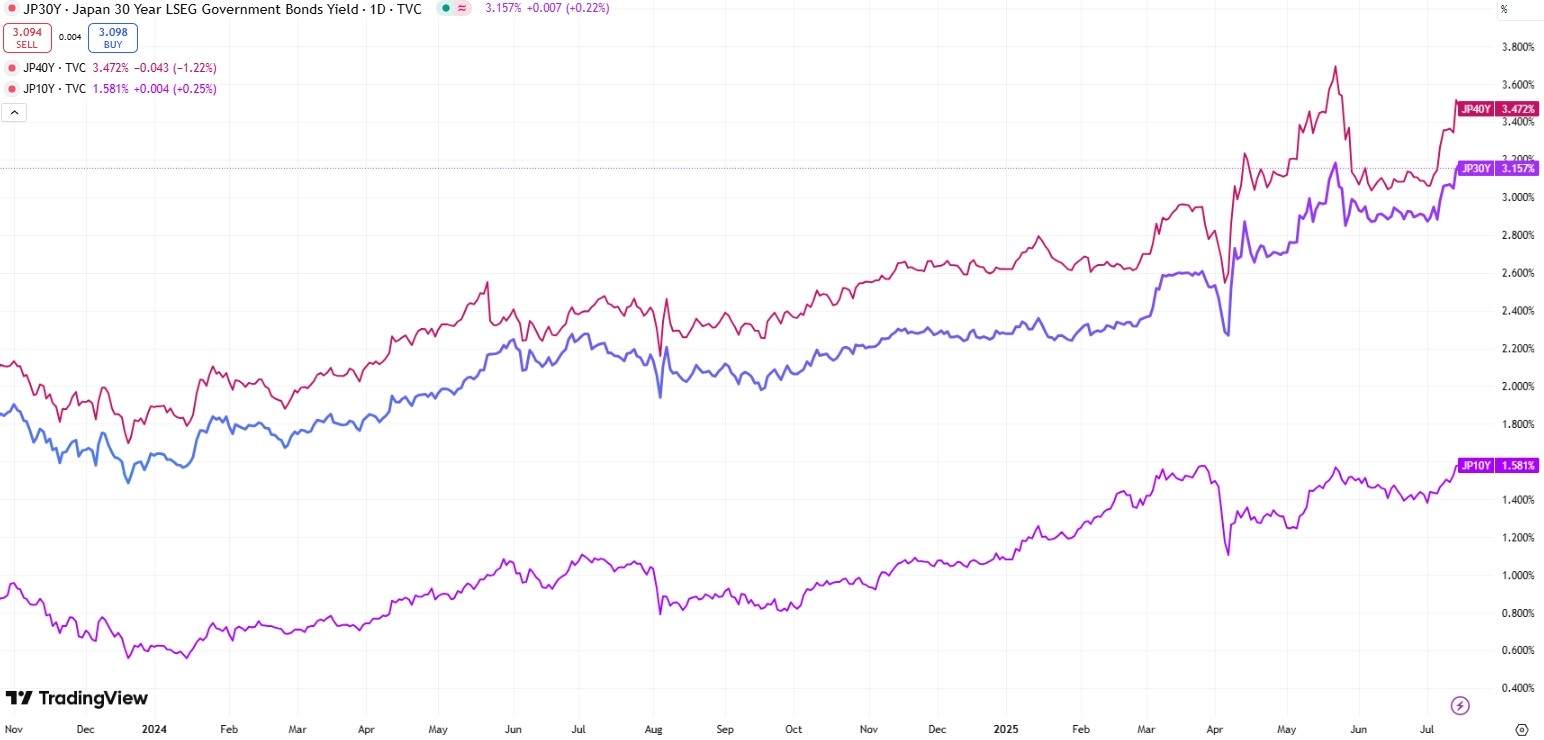Japan’s Biggest Risk in 2025: The Upper House Election Could Trigger PM Ishiba’s Resignation and Derail U.S.-Japan Trade Talks

TradingKey - Compared to the political and fiscal risks posed by Japan’s upcoming Upper House election, concerns over the Bank of Japan’s (BoJ) bond purchase reduction and weak JGB auctions earlier this year now seem like minor tremors.
Economists are increasingly viewing the July 20 election as a potential turning point for Japan’s political landscape. A ruling coalition defeat could reshape the outlook for Japanese bonds, equities, and the yen.
With growing odds that Prime Minister Shigeru Ishiba’s ruling LDP-Komeito coalition will fail to maintain its majority, opposition parties pushing for tax cuts and expanded fiscal stimulus may gain greater influence — sending shockwaves through financial markets.
Investors fear a surge in government bond issuance and worsening fiscal conditions — which have already triggered a sharp selloff in Japanese government bonds since early July.
On July 15, yields surged:
- 10-year JGB yield hit 1.595%, the highest since 2008
- 20-year yield rose to 2.650%, the highest since late 1999
- 30-year yield approached 3.20%, setting a new all-time high

Long-Term Japanese Government Bond Yields, Source: TradingView
Market Bracing for Political Shift
SMBC Nikko Securities economists said investors are beginning to price in possible election outcomes — including the fall of the ruling party and Ishiba’s resignation.
A change in leadership would likely bring:
- Increased volatility in the JGB market, due to expectations of more aggressive fiscal spending
- Political pushback against further BoJ tightening, limiting future rate hikes
Nomura Outlines Two Scenarios for Post-Election Japan
In a note published on July 14, Nomura Securities laid out two core scenarios based on the outcome of the Upper House vote:
Scenario 1: Ruling Coalition Maintains Majority
- If the LDP-Komeito coalition retains control, trade negotiations with the U.S. will continue toward the August 1 deadline set by Trump
- BoJ is likely to proceed with another rate hike later this year
- Japanese equities may face pressure under a stronger yen environment
Scenario 2: Ruling Coalition Loses Majority
- Any signal that PM Ishiba may resign or delay trade talks with the U.S. could trigger greater yen depreciation
- The BoJ’s rate hike path would be blocked — potentially benefiting equities
- However, uncertainty from stalled trade talks and rising deficit concerns would weigh on investor sentiment
While equity market confidence may suffer amid political instability, a new government favoring expansionary economic policies could support growth — particularly among export-oriented stocks.







